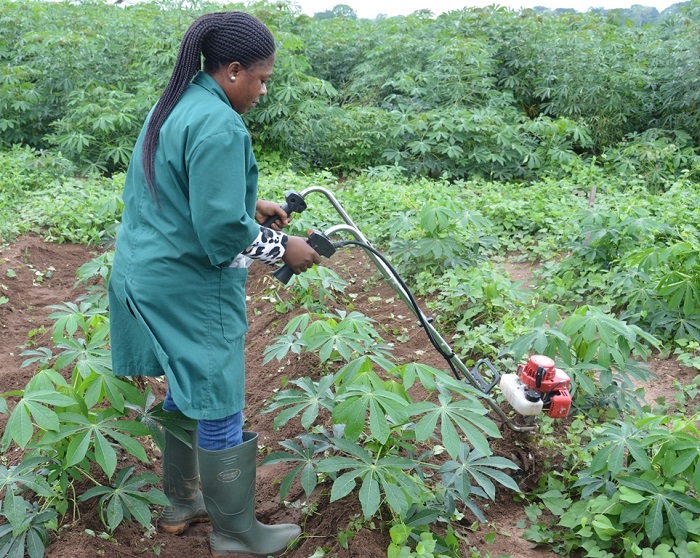Smallholder farmers often face difficulties in production and marketing of their produce. They usually sell their produce individually at to middlemen or on local markets at set prices. This thus reduces farmers to price takers irrespective of the production costs incurred in the production and marketing process. Furthermore, they are forced to bear the high risk of being unable to market their entire produce. Similarly, processors are often unable to procure the quantity and quality of the product they are looking for.
Contract farming is a possible solution to such a situation; it involves production by farmers under agreement with buyers for their outputs. This arrangement can help integrate the smallholder farmers into modern agricultural value chains, providing them with inputs, technical assistance, and assured markets. As such, the venture enables the farmers to raise their farm income especially for high-value crops.
Whereas critics argue that contract partners may subject farmers to abuses, available literature on the subject shows that in fact contract farming can raise farm income. However, this is only the case for high-value crops.
Contract farming is also seen as a solution to a number of constraints that limit the productivity and income of smallholder farmers in developing countries, including lack of credit, limited information about production methods, market risk, and poor market linkages. In this view, contract farming can help farmers move from subsistence production of low-value staple foods to commercial production of higher-value crops, allowing them access to the wider economy and raising their income.
Countering the favourable view of contract farming, there are concerns that firms may exclude small-scale farmers, preferring to work with a smaller number of larger farmers, thus exacerbating rural income inequality. Other analysts argue that where companies work with smallholders, the imbalance of power and information between them enables agribusiness firms to impose contract terms on small farmers, manipulate quality standards to reduce payments to farmers, and renege on agreements if market conditions change
Reliable figures are not yet available on the number of farmers in developing countries participating in contract farming. Informal estimates suggest that as many as one-quarter of Kenyan farmers may be on contract. But rates in most countries are probably much lower.
The prevalence of contract farming varies widely by type of buyer, destination market, and commodity. Contracting firms are almost always relatively large processors, exporters, or supermarket chains. Small-scale traders and wholesalers rarely offer farmers pre-planting contracts. This is largely attributed to the large fixed costs associated with contracting. As such, firms must establish a network of trained field agents who recruit farmers, provide advice, monitor compliance, and organize collection of the harvest.
Contract farming arrangements are often created for markets willing to pay a premium for specific product attributes. Export markets and supermarket chains establish quality standards and demand products of a certain size, color, maturity, and flavor. In serving these markets, processors often need products to meet requirements in terms of uniformity and chemical characteristics. Seed companies require that their growers multiply seed under carefully controlled conditions to avoid contamination with seed from other varieties or crops. In these situations, it is easier to communicate and enforce quality requirements if the buyer contracts farmers to grow the product.
Conversely, there is less incentive for buyers to contract farmers when the product will be sold as a staple food for price-sensitive consumers. The prevalence of contract farming differs substantially across commodities. Contract farming is relatively common in the case of fruit and vegetable product ion for export or sale to domestic supermarket chains, as is the case in Kenya, Madagascar, and Senegal. Many traditional agricultural export crops such as tea, oil palm, and rubber are often grown on “nucleus estates,” company-owned plantations surrounded by independent growers who produce under contract.
The Kenya Tea Development Agency, a private firm, has one of the largest contract farming networks in the world, with more than 500,000 small-scale growers. Commercial poultry production is often carried out under contracts in which a firm provides chicks, feed, and other inputs to the farmers and commits to buying the chickens when grown.
Contract farming is rarely used in the production of staple cereals, roots, and bean crops. This is presumably because buyers are less quality sensitive, and markets are widespread, so spot markets are able to coordinate supply and demand without the additional costs associated with contract production. Exceptions include barley for largescale breweries, grain seed production, and niche products such as organic rice.








